Taiwan Tech wins Red Dot Design Concept Awards for the third consecutive year, securing the top spot in the Red Dot Design Ranking for the Asia-Pacific region
In 2023, the Red Dot Award, a prestigious international design competition in Germany, featured nearly 4,000 entries from around the world, ultimately selecting 188 works for the Red Dot Award. Taiwan Tech secured the Red Dot Design Award (Winner) for three outstanding creations: the “Unitstick” – a versatile virtual reality controller, the “RTV-Rapid Treatment Vehicle” – a fast-response medical command vehicle, and a “Detachable table” designed for easy assembly without the use of any metal screws, crafted entirely from beechwood. Taiwan Tech has also earned the remarkable title of being the top-ranked institution in the Asia-Pacific region for the third consecutive year in the Red Dot Design Ranking, a testament to its rich design and innovation capabilities that have gained international recognition.
Second-year doctoral student, Ji-Wei He, garnered acclaim in the competition with his “Detachable table”, focusing on joinery techniques without any metal screws. This marked his fourth Red Dot Design Award win. Ji-Wei He's background is not in furniture design but in product innovation. He places a strong emphasis on practicality, emphasizing that clean, flat furniture designs are more in line with market demand. Furthermore, he places substantial emphasis on convenience in product storage, disassembly, and reassembly. His advisor, Jian-Xiong Chen, pointed out that the flat, disassembled form facilitates packaging and transportation, aligning with contemporary trends emphasizing energy efficiency, carbon reduction, and sustainable design principles.
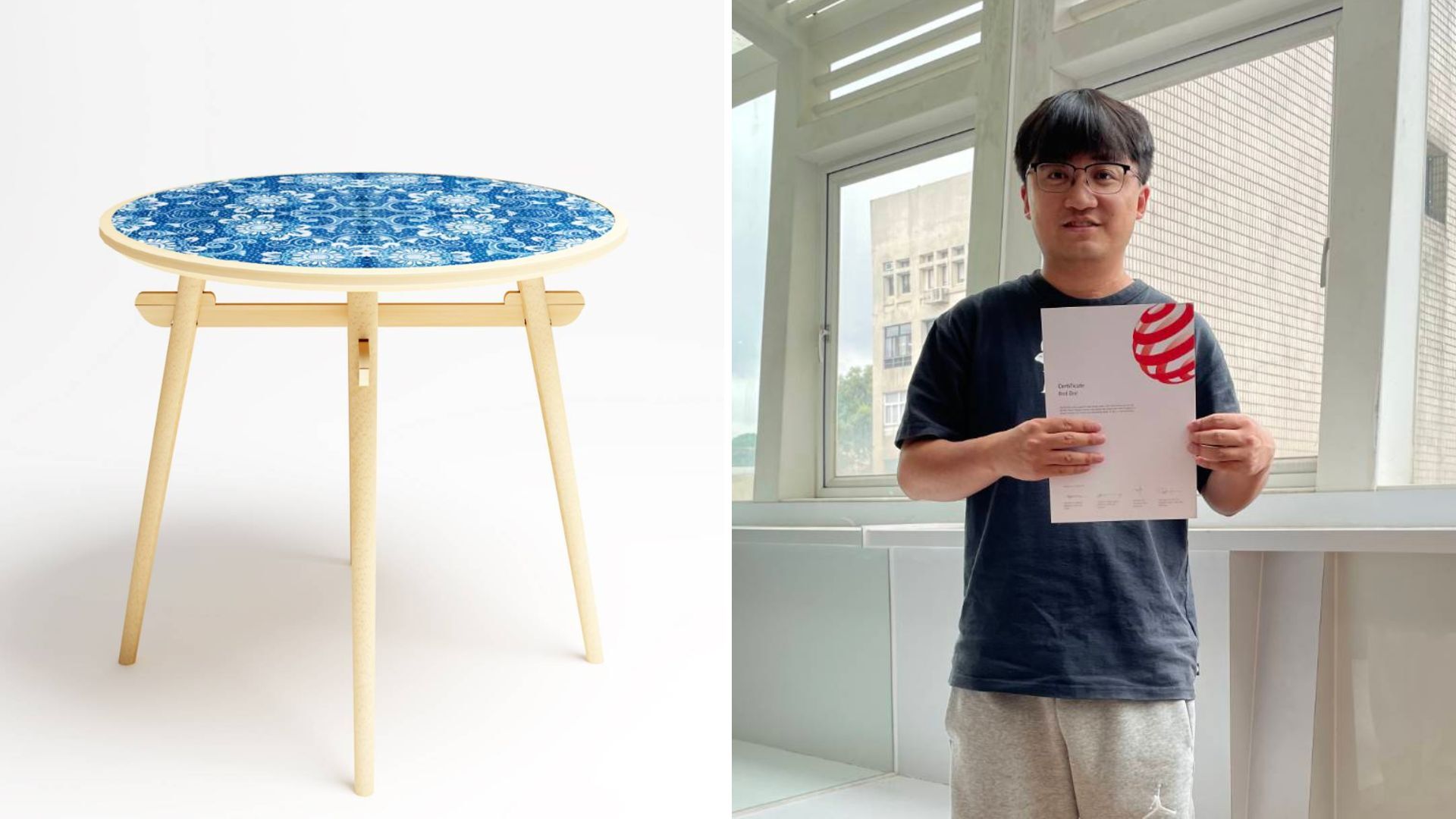
Second-year doctoral student Ji-Wei He achieved his fourth Red Dot Design Award with his creation, the “Detachable Table”.
In response to the challenges posed by narrow and rugged roads at disaster sites, students from the Department of Design, Yan-Chi Chang and Guan-Ming Yang, developed a specialized medical vehicle designed to transport medical facilities and provide an emergency medical zone. Characterized by high mobility and versatile spatial design, this solution addresses the critical issue of rapid and high-quality rescue operations during disasters, enabling medical personnel to deliver comprehensive healthcare services at disaster sites.
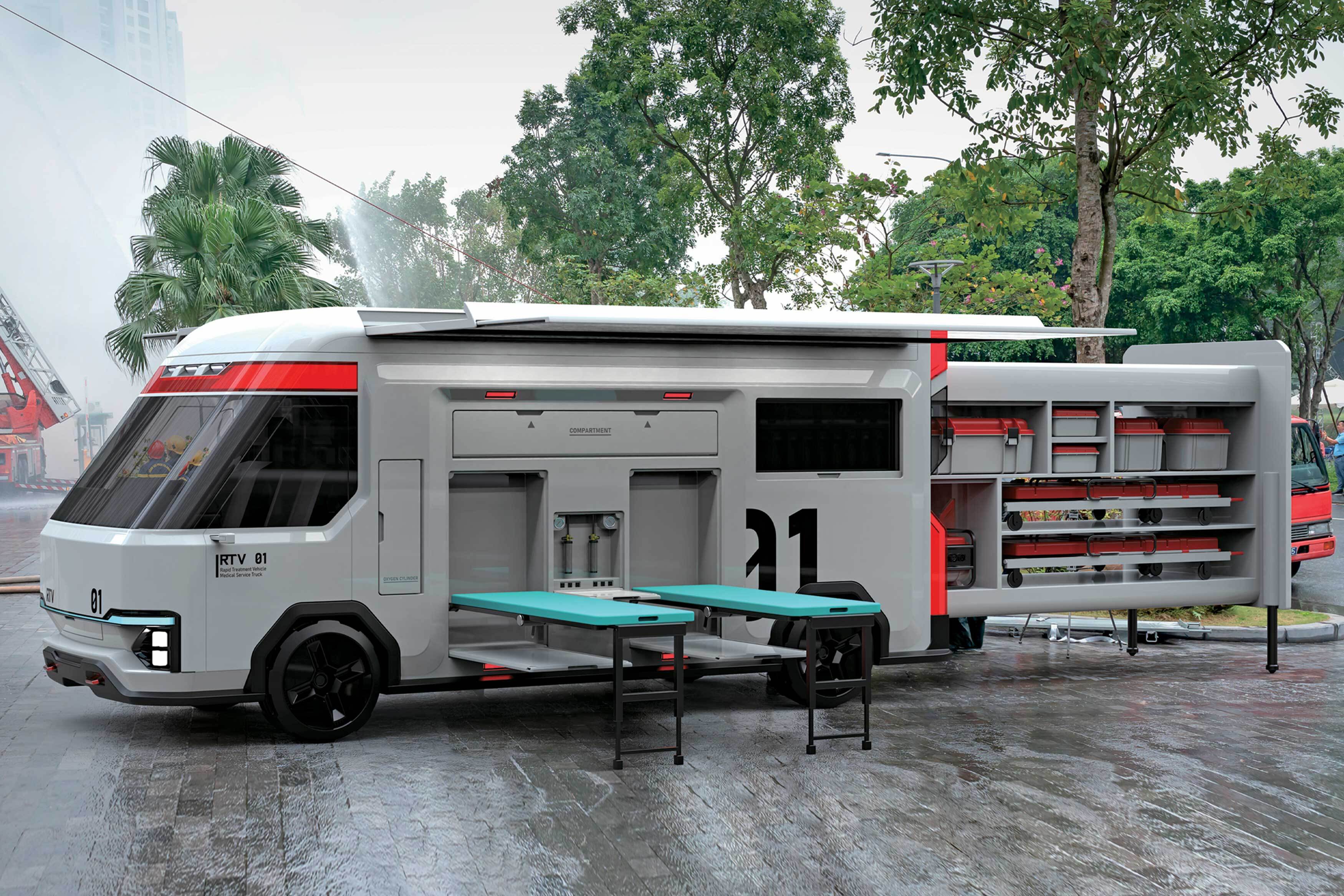
The “RTV-Rapid Treatment Vehicle” allows paramedics to quickly access equipment from the expandable rear compartment without the need to enter the vehicle. The design also includes adjustable patient beds to accommodate different types of emergency care and features a signaling system to display the patient's condition.
Student Yan-Chi Chang mentioned that although they faced setbacks in the Golden Pin Design Award and the German iF Product Design Award, they were pleasantly surprised by their eventual success in receiving the Red Dot Design Award. The recognition of their work in such a competitive field filled him with a sense of pride. He also expressed his plans to pursue a master's degree in automotive design in the United States next year, with the hope of making a positive impact on society and daily life through vehicle design. He concluded, “This award is a beautiful culmination of my four years in college!”
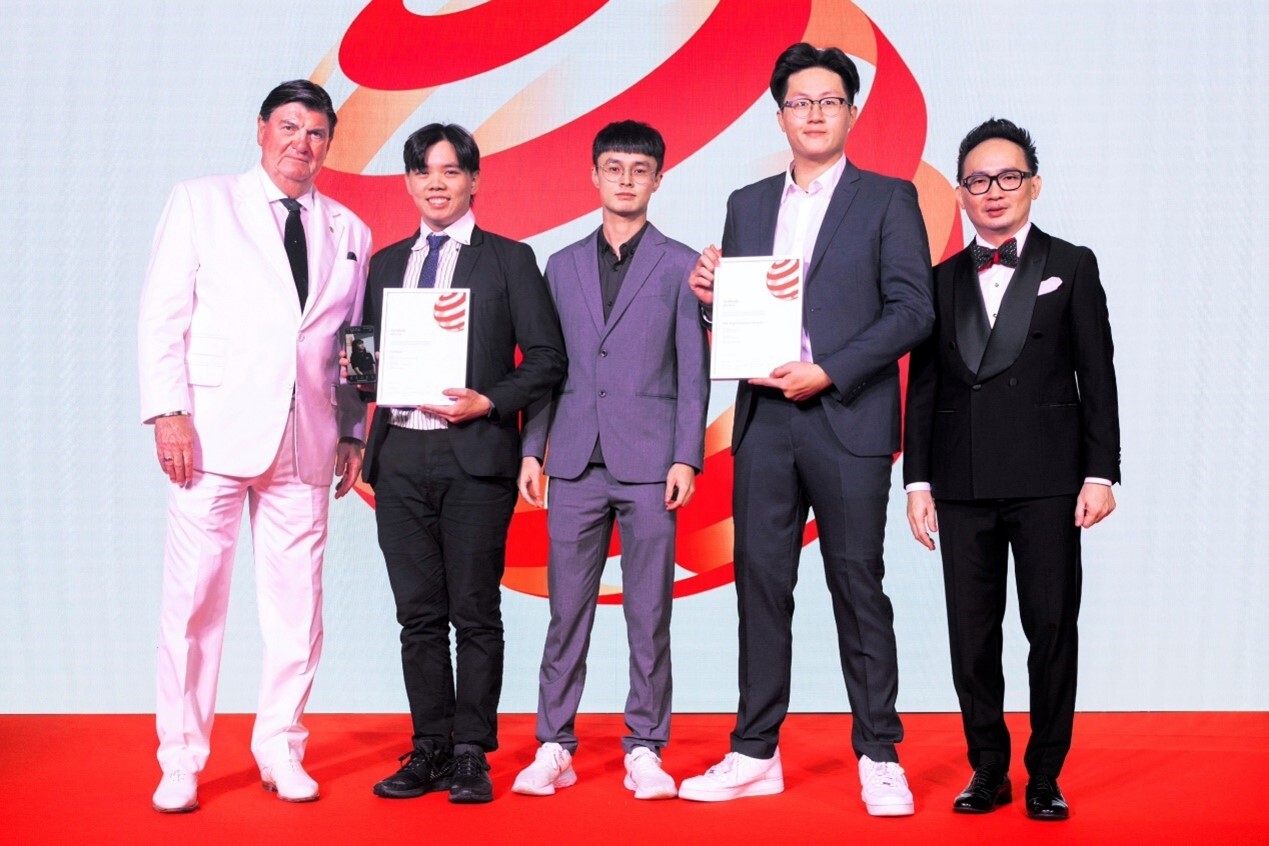
Students from the Department of Design, Yan-Chi Chang (second from the right) and Guan-Ming Yang (third from the right), have been recognized with the Red Dot Design Award for their creation, the “RTV-Rapid Treatment Vehicle”.
The instructor from the Department of Design, Shih-Hsu Lin, emphasizes the significance of empathy in the design process and the importance of creating solutions that are genuinely “beneficial to people”. Following the design's completion, he has actively engaged with the fire station and automobile manufacturers, with the hope of one day realizing the production and deployment of the “RTV-Rapid Treatment Vehicle” in disaster relief efforts.
On the other hand, the “Virtual Reality Multi-Purpose Controller”, created by Qing You and Rong-Sheng Lin, aims to enhance the user experience in VR gaming. Users can swiftly assemble it into various controller modes, such as a gun for shooting games, a steering wheel for racing games, or a baseball bat for sports games, offering eight distinct modes. With ergonomic shapes and haptic feedback, this design elevates the VR experience to new heights. Additionally, it allows for easy assembly, disassembly, and compact storage.
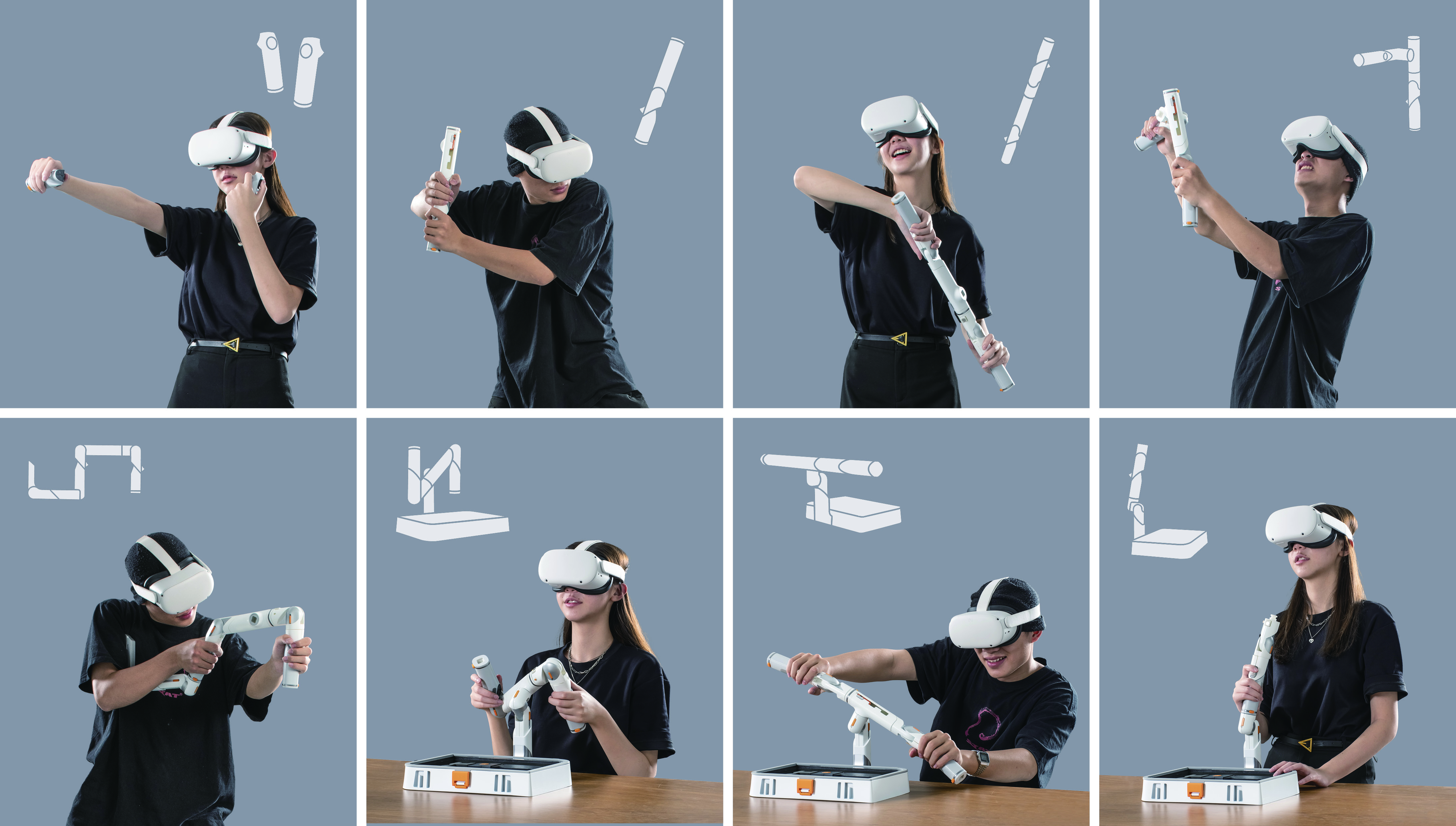
The “Virtual Reality Multi-Purpose Controller” (Unitstick) can be rapidly configured into eight distinct forms to adapt to a variety of VR gaming scenarios.
According to Qing You, the invaluable assistance they received primarily came from their instructors' expertise and resources. Professor Huang-Xu Shi, with his background as an industrial designer, provided guidance on refining the controller's aesthetics, functionality, and packaging design, and facilitated connections with relevant industry partners and opportunities. Additionally, Professor Neng-Hao Yu, a distinguished VR enthusiast and researcher, offered authentic feedback and technical resources on hardware and software. Rong-Sheng Lin expressed great satisfaction in receiving recognition for their work, affirming, “It demonstrates that we are on the right track in this path of innovation, and we will maintain this level of enthusiasm in our future endeavors!”
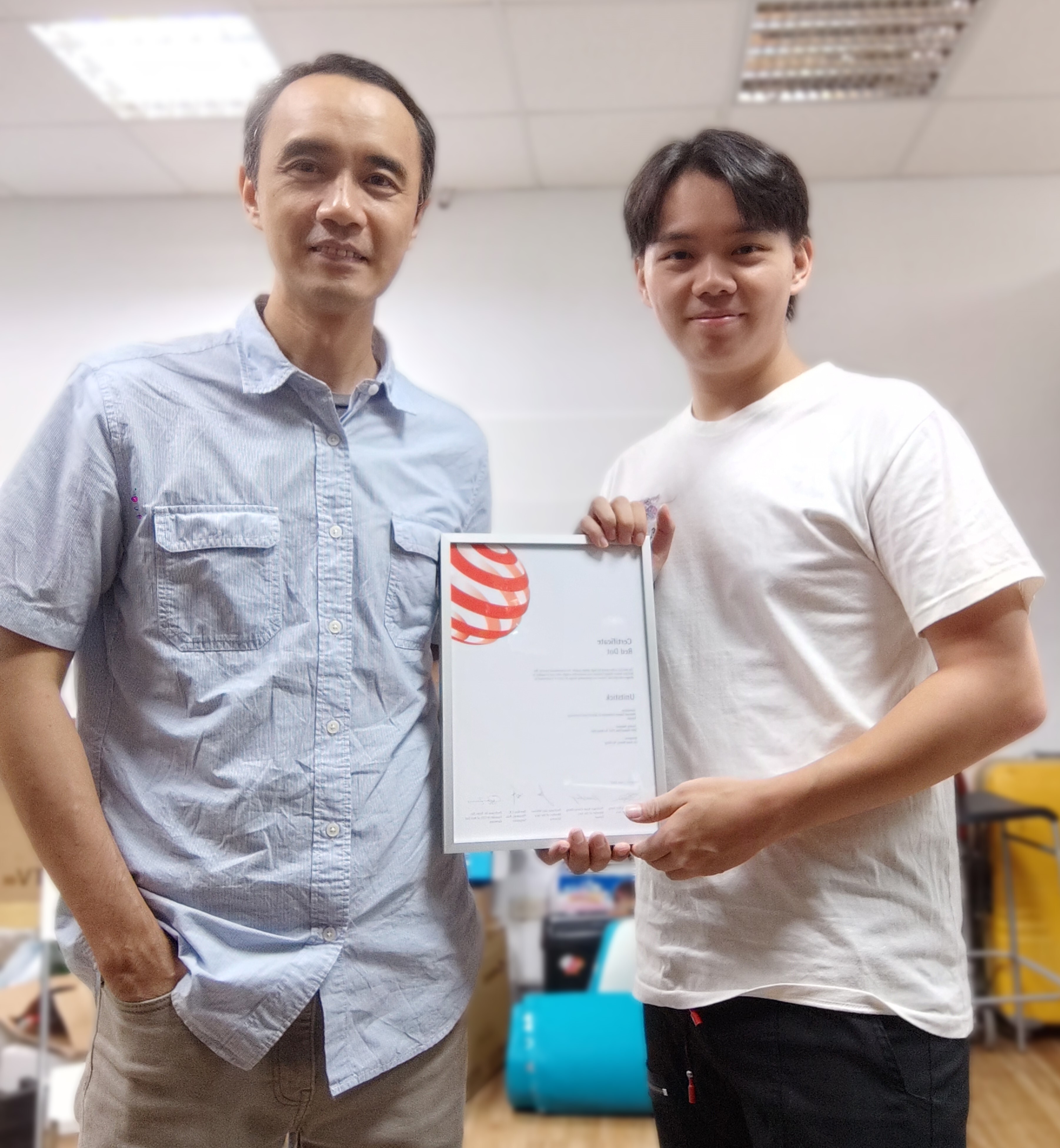
The work “Virtual Reality Multi-Purpose Controller” (Unitstick) by Qing You and Rong-Sheng Lin received the Red Dot Design Award. Pictured from right to left: Rong-Sheng Lin, and their mentor, Neng-Hao Yu.
Instructors in the department have confronted challenges due to the shift to distance learning caused by the pandemic. Nevertheless, Huang-Xu Shi, their design mentor, emphasizes adaptability and innovation among students. He encourages students to excel in their design work and bring out their creativity, as it can shine on the appropriate stage. Furthermore, he acknowledges that winning awards is an additional feather in one's cap, and not winning should not deter one's enthusiasm, as having exceptional work is the ultimate means of self-validation.
The organizing committee evaluates the innovation and design capabilities of companies and schools worldwide over the last five years, culminating in the annual Red Dot Design Ranking. Taiwan Tech has achieved the distinction of being the top institution in the Asia-Pacific region among academic institutions for three consecutive years. Neng-Hao Yu, an assistant professor in the Department of Design and mentor for 'Virtual Reality Multi-Purpose Controller,' notes that the field of design is undergoing a profound transformation. The market is changing, and the role of a designer is no longer confined to product or visual design alone. He emphasizes the importance of cultivating designers who possess both aesthetics and rational thinking, stating, “Solving various problems for society or businesses requires us to train more designers with such a dual skill set”. He believes that promoting diversification and encouraging the collision of different creative ideas are essential to sustaining the energy of design.
